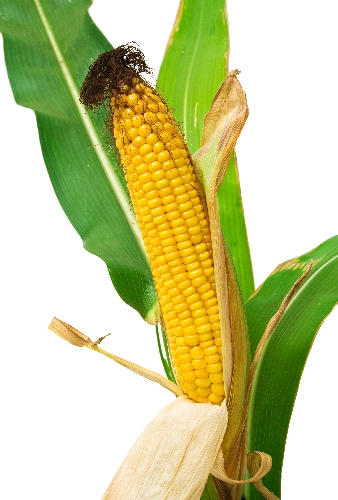Experts blame diet, not high-fructose corn syrup, for obesity
Considering the reputed merits and perils of high-fructose corn syrup, one might feel like the person in the commercial sponsored by the corn industry. You know the one: A person offers another a food or beverage containing the much-maligned substance, with the intended recipient recoiling in horror. What, exactly is wrong with it, the giver asks -- to be met with a blank look.
Just what is it about high-fructose corn syrup that has given it the reputation that it's the Osama bin Laden of the dietary world?
"In my opinion, it's not justified," said Laura Kruskall, a registered dietitian and director of the department of nutrition sciences at the University of Nevada, Las Vegas.
"It's not that it's bad," agreed Joanna Gorman, a registered dietitian at University Medical Center, noting that the American Dietetic Association's position is that no foods are inherently bad.
And high-fructose corn syrup is, after all, from a food -- corn -- Kruskall noted. "It does not include any artificial or synthetic ingredients or color additives. It is nearly identical to table sugar, approximately half-glucose, half-fructose.
"The reason why it's been demonized is that people link it to obesity and diabetes in particular."
But the link is more of a faulty assumption, the dietitians said.
"I think there were some people who were looking at obesity and noticed how this was so prevalent in so many high-calorie foods and thought off the bat this has to be contributing," Gorman said. "I think people just overreacted. I don't find it a no-no, like trans fats. Completely different situation."
The biggest contributor to rising rates of obesity and diabetes in America, Kruskall said, is the imbalance of energy -- the fact that we collectively take in more calories than we burn at our way-too-low rate of physical exercise. Kruskall noted that consumption of high-fructose corn syrup has decreased in the United States, but obesity has still risen. And in countries where it has seen limited use, obesity and diabetes rates have increased, she said.
The problem, said Dr. Alexander Akhavan, a hospitalist at Sunrise Hospital, is our diets in general.
"Unfortunately, most peoples' diet in this country is not what it should be," Akhavan said. "There's too much dairy, too much processed food. It all leads to weight gain and the problems associated with that. A little bit of sugar in the diet is perfectly fine. When you look at the population as a whole, they consume too many calories and carbohydrates."
But "at the end of the day," he said of sugar and its demonized counterpart, "one's not worse than the other." Of the current movement among some soft-drink companies to switch back to cane sugar, he said, "people will still end up with too many calories or carbohydrates, no matter what kind of sugar they're using in it."
The opinions of Akhavan and the dietitians are backed by the American Medical Association, which in 2008 noted that "at the present time, insufficient evidence exists to specifically restrict use of high fructose corn syrup (HFCS) or other fructose-containing sweeteners in the food supply or to require the use of warning labels on products containing HFCS," although it added that the group "recommends that consumers limit the amount of added caloric sweeteners in their diet."
Also in 2008, the American Dietetic Association announced that the substance "is nutritionally equivalent to sucrose" and that "once absorbed into the bloodstream, the two sweeteners are indistinguishable."
Still, doubts persist. In a study whose results were released in February, researchers at Princeton University found that rats given high-fructose corn syrup gained more weight than those given sugar, even when their caloric intake was equal.
"Humans and rats are not the same thing," Akhavan said. "Rats are a close model. But to say everything overlaps is not correct. I wouldn't make any assumptions from the study."
If you're confused by the issue, don't be. Even though the industry has applied to change the name of high-fructose syrup to "corn sugar," there's just one thing to remember.
"It's the intake of all sweetened food and beverages that we need to pay attention to," Kruskall said.
"It really is just a type of sugar," said Sue Lednicky, a nutrition educator with University of Nevada Cooperative Extension. "Certainly you should limit all types of food with added sugars as much as possible, just because of the calorie content."
Contact reporter Heidi Knapp Rinella at hrinella@review journal.com or 702-383-0474.




























